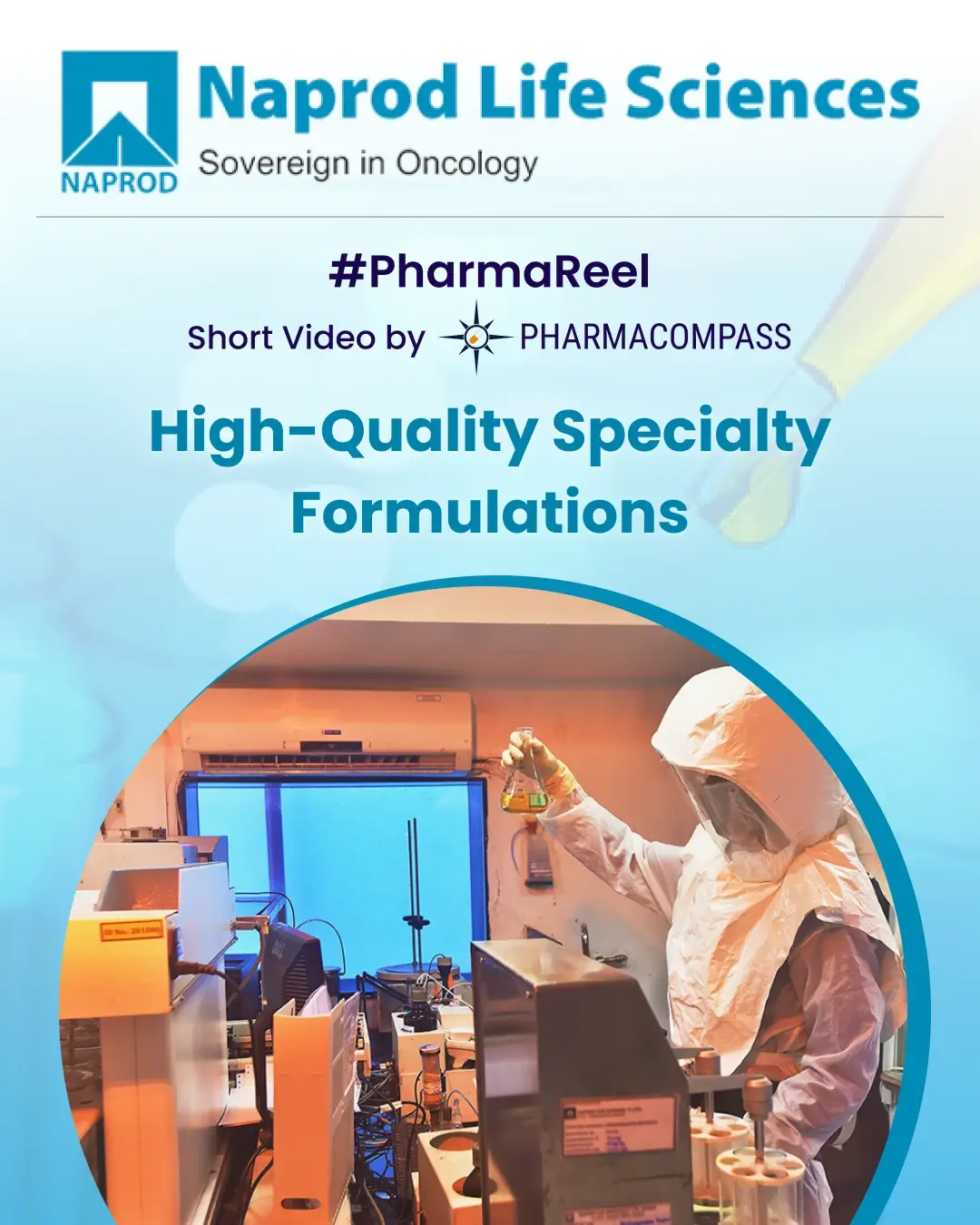
This week, Phispers looks at the drastic steps taken by Teva’s Kare Schultz as he pulls out the axe in his first month as CEO of the Israeli drug maker. In the UK, Merck and Qiagen pledge investments and give a thumbs up to the country’s new industrial strategy. Meanwhile, the US FDA added a data update to its Orange Book to bring transparency around patent submission dates. Fresenius Kabi stepped up investments in the US. And AstraZeneca found a partner in Chinese government-owned private equity group for a joint venture to develop new drugs for Asia
Teva’s new CEO pulls out the axe; shakes up top management
Kare Schultz, the CEO of Teva Pharmaceutical Industries, took charge of the beleaguered Israeli generic drug player on November 1 this year. And within a month, Schultz has embarked on a new management structure, which is being implemented immediately. Schultz booted out Michael Hayden, the chief scientific officer, Rob Koremans, head of global specialty medicines, and Dipankar Bhattacharjee, head of the global generic medicines group. The trio would step down at the end of the year, Teva said.
According to reports, mass layoffs targeted at reducing 25 percent of the workforce are being planned. The company said a more detailed restructuring plan would be announced sometime in the middle of December. The job cuts outside of Israel are expected to be concentrated in the US, and would spare Europe.
The vision unveiled in a presentation by the new CEO promises to make Teva agile, lean and profitable and will see the company pivoting back to focus on generic drugs.
Schultz had joined Lundbeck in August 2015, from Novo Nordisk. At Lundbeck, he had reduced the workforce by 17 percent. And by July 2016, after 1,000 layoffs, the company’s profits looked up.
Schultz is using the same approach at Teva, which has been going through a rough period after its US$ 40.5 billion acquisition of Allergan Plc, for which it undertook a debt of nearly US$ 35 billion. Moreover, profits from generics have slumped since the Allergan buyout, resulting in poor quarterly numbers for the generic drug giant.
“Teva is taking decisive and immediate action to address external pressures and internal inefficiencies,” Schultz said.
“We will focus on driving sustainable value creation. The new management team will position Teva for turnaround in the short to medium term,” he added.
Post
Akorn buy, Fresenius continues to invest in US; to create 445 jobs in NC
While generic drug companies across the US face pricing pressure and increased competition, Germany-headquartered Fresenius Kabi continued to make investments in the world’s largest pharmaceutical market.
Fresenius Kabi will expand its manufacturing operations in North Carolina, USA, by investing more than US$ 100 million at the syringe and drug-making site in Wilson, North Carolina, that it acquired in 2016 from Becton Dickinson.
This expansion will be in part facilitated by a US$ 7.2 million Job Development Investment Grant (JDIG) approved by North Carolina’s Economic Investment Committee. Under the terms of the grant, Fresenius Kabi has agreed to create 445 jobs over five years.
In April this year, Kabi had acquired Illinois-based generic drug company Akorn for US$ 4.75 billion in order to get a stronger foothold into the US. Akorn specializes in sterile injectables but also has a portfolio of products spanning new dosage forms for Fresenius, including sterile ophthalmics, topical creams, ointments and gels.
The Akorn deal, which is slated to close early next year, will add three US manufacturing sites and one Indian site to the Fresenius’ network, along with about 2,000 employees.
In September this year, Fresenius Kabi broke ground on a US$ 250 million expansion at its drug manufacturing site in Melrose Park, Illinois.
“Our strategy is to produce in the US and to invest in products and operations that meet important customer needs while helping make healthcare more accessible for patients,” Steven R. Nowicki, senior VP of global operations for Fresenius Kabi North America, said in a statement. “We’re pleased to continue this approach at our site in North Carolina.”
FDA takes steps to increase generic
competition through data update to Orange Book
Last week, the US FDA introduced yet another step to increase generic competition. It added an important data update to its Orange Book (a shorter name for the Approved Drug Products with Therapeutic Equivalence Evaluations).
The step would bring more transparency around patents and their lapse dates. Search results and drug listings now show patent submission dates, where available. This information would help generic drug makers know the earliest date when they can market generic copies.
With this information, more generic players are expected to enter the market, stepping up competition. Increased competition, in turn, would help lower drug prices, while also making generics available in the market more quickly.
The FDA is publishing patent submission dates to fulfill a commitment in the October 2016 final rule “Abbreviated New Drug Applications and 505(b)(2) Applications”.
The FDA began collecting patent submission date data in 2013. There are now about 4,000 patent records for which submission dates are available, and these are now published in the Orange Book.
Astra partners with Chinese government’s private equity fund to develop new drugs
A few weeks ago, AstraZeneca’s CEO Pascal Soriot had boasted of the company’s double-digit sales growth in China. And this week, we learn that the British pharmaceutical giant is partnering with a Chinese government-owned private equity group to create a new joint venture biopharmaceutical company that will develop new drugs for the booming Asian market.
The joint venture will be funded by the Chinese Future Industry Investment Fund, managed by the China State Development & Investment Corporation.
The new company — Dizal Pharmaceutical — incorporates all scientific and technical capabilities of AstraZeneca’s Innovation Center China (ICC). It “holds exclusive rights to develop and commercialize three potential medicines currently in pre-clinical development from AstraZeneca’s pipeline in its main therapy areas of oncology, cardiovascular and metabolic diseases, and respiratory. It is also expected to initiate novel clinical programs,” a company statement said.
Xiaolin Zhang, who headed AstraZeneca’s ICC, has been named the CEO of Dizal Pharma. AstraZeneca has offered jobs to all staffers of ICC in Shanghai.
China is now the world’s second-largest market for pharmaceuticals after the United States, with more cases of cancer and diabetes than any other nation. For AstraZeneca, this is a big growth market and Soriot is hoping to make some big gains through the locally-backed outfit.
Through this joint venture, AstraZeneca also plans to tide over the wave of regulatory reforms in China’s drug industry, while getting new drugs to market more quickly.
China Food and Drug Administration recently took steps to accelerate new drug approvals.
These reforms have triggered growing interest in China as a center for drug development.
As
UK announces new
industrial strategy, Merck, Qiagen pledge investments
The United Kingdom announced a new strategy white paper for its industry that seeks to tackle weak productivity through greater state intervention. This strategy has been put in place to help Britain cope better with its exit from the European Union.
Flagged off by Prime Minister Theresa May in January this year, the 131-page strategy document released this week aims to reposition Britain so it can profit from the technological revolution through increases in investments in R&D, by improving technical education and by building better infrastructure.
The strategy received a thumbs up from American life sciences company Merck, known as MSD in Europe. Merck confirmed that 950 high-quality jobs would be supported by its new research facility in an investment estimated at around US$ 937.6 million (£700 million). Merck has begun to seek a site for its new “Discovery Centre” in London. The company hopes to have the facility ready by 2020. Merck is already gearing up and recruiting scientists to start work at a temporary facility.
The other company that has committed to investing in the UK is German diagnostics company Qiagen. According to the Financial Times, Qiagen plans to invest hundreds of millions more into a new genomics center in Manchester.
According to the UK’s business secretary, Greg Clark, “there is a pipeline of new announcements of investments over the weeks ahead that we now expect.”
The Office for Budget Responsibility recently halved its forecast of the UK’s long-term productivity trend to 1 percent. According to Clark, this had increased the need for an industrial strategy even further.
The Golden Triangle of London, Oxford and Cambridge remains one of the world’s top biotech hubs. However, companies like Takeda, Novartis, Pfizer and Roche have been closing down some of their work in the UK following the Brexit vote.
EU publishes
guidance to help pharma companies prepare for Brexit
This week, the European Medicines Agency (EMA) published a new guidance document to help pharmaceutical companies prepare for the United Kingdom’s withdrawal from the European Union.
The guidance document aims at providing practical and simplified requirements that companies should follow when they apply for changes to their marketing authorizations to allow for the continued marketing of their medicine in the European Economic Area after the UK withdraws from the EU.
The guidance has been prepared on the premise that the UK will no longer be part of the EU as of March 30, 2019. The new guidance should be read in conjunction with a previous set of questions and answers that were published in May 2017".
The PharmaCompass Newsletter – Sign Up, Stay Ahead
Feedback, help us to improve. Click here
Image Credit : 116 EXIT by Eric Merrill is licensed under CC BY 2.0
“ The article is based on the information available in public and which the author believes to be true. The author is not disseminating any information, which the author believes or knows, is confidential or in conflict with the privacy of any person. The views expressed or information supplied through this article is mere opinion and observation of the author. The author does not intend to defame, insult or, cause loss or damage to anyone, in any manner, through this article.”






